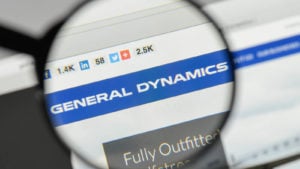
As 2024 looms, investors are eyeing the stocks to buy ahead of the presidential election. So far, 2023 has been a testament to this trend, with the S&P 500 index witnessing a healthy rise of more than 10%. This surge owes much to the burgeoning interest in artificial intelligence and the growing belief that the Federal Reserve would adopt a more dovish stance as we advance.
As we navigate the market choppiness, the post-election period often clears the fog, providing a clearer direction for investors to discover the best stocks to buy ahead of the presidential election. This phase has historically been remarkably favorable for the market, with stocks usually climbing in the wake of the elections.
Therefore, identifying the top three stocks to buy ahead of the presidential election could be a strategic move for savvy investors seeking to capitalize on this electoral cycle’s anticipated market uplift.
Chevron (CVX)

Chevron (NYSE:CVX) is strategically positioned to thrive, especially if the Republicans clinch victory in 2024. The party’s inclination towards bolstering the oil and gas sector spells good news for Chevron and its peers.
Reflecting on the last Republican presidency, Chevron and its peers benefited from policies easing environmental regulations and expanding access to drilling sites. Such a political landscape in 2024 could further enhance Chevron’s operational scope and bottom-line growth.
This political shift could enhance Chevron’s ability to maintain or even increase its attractive dividend yield, which stands at a stellar 4.23%. Moreover, Chevron’s robust financial strategy, highlighted by its acquisition of Hess Corporation, will add another layer to its growth story. With a massive free cash flow base of $18.23 billion, Chevron can sustain and potentially increase its dividend payouts.
First Solar (FSLR)

Despite the headwinds of high-interest rates, the solar energy sector, led by First Solar (NASDAQ:FSLR), defies the skeptical market sentiment.
Contrary to the belief that the industry is stagnating, First Solar’s impressive third-quarter results tell a completely different story. It posted a substantial 27% year-over-year revenue increase to $801 million, while its EPS of $2.50 surpassed the $2.04 analyst estimate. This performance is underpinned by an impressive total backlog of 81.8 gigawatts, pointing to its robust prospects.
First Solar is not just thriving in the present; it’s paving the way for future success. With three operational factories in Ohio and two more in the pipeline, the company can leverage American-made solar module tax credits.
Under a Democratic administration in 2024, solar energy stocks like First Solar should see increased governmental support and financial incentives, bolstering investor confidence and driving further growth in the green energy space.
General Dynamics (GD)

General Dynamics (NYSE:GD) is one of the leading names in the defense sector. It stands out for its expansive range of aerospace and military solutions, including its collaboration with Lockheed Martin on the F-16 Fighting Falcon.
Its robust positioning is underscored by a substantial backlog of $95.6 billion concentrated in marine systems and aerospace at the conclusion of the third quarter.
In a more immediate context, General Dynamics should benefit from the growing demand for artillery shells, being one of the main suppliers for the U.S. military. General Dynamics’ stock is expected to rise due to the ongoing conflict in Ukraine. Historically, Republican administrations have significantly augmented defense policy bills.
This trend suggests that in a 2024 Republican win, defense stocks could experience substantial growth, presenting them as potentially lucrative investments.
Enbridge (ENB)

Enbridge (NYSE:ENB) remains a major force in energy transportation and distribution, showcasing its financial resilience in its most recent quarterly results.
Its third quarter report showed a 3% bump in adjusted EBITDA to $3.9 billion and a jump in operating cash flow from $2.1 billion to $3.1 billion year-over-year.
With a levered free cash flow margin of 7.52%, its financial prowess is a testament to Enbridge’s stellar standing in a competitive energy market. Enbridge’s strategic expansion, including the Rio Bravo pipeline and acquisitions of The East Ohio Gas Company and Questar Gas Company, position it for long-term growth.
Looking ahead, a Democratic victory in the 2024 election could play a key role for Enbridge. Democratic policies, particularly those impacting pipeline projects such as the Keystone XL, could inadvertently work in Enbridge’s favor.
Limiting or halting competing pipelines would substantially increase the reliance on Enbridge’s network for transporting oil from Canada to the U.S.
Innovative Industrial Properties (IIPR)

Innovative Industrial Properties (NYSE:IIPR) stands out as a unique investment option, offering diversification benefits in the burgeoning cannabis industry.
IIPR provides a critical financial lifeline as a sale-leaseback REIT in a market where traditional debt financing can be incredibly challenging due to regulatory hiccups.
The U.S. cannabis market is projected to expand at an annual rate of 14.2% through 2030, placing IIPR REIT at the center of this growth narrative. The fund is a critical player, hosting some of the world’s leading cannabis producers. Its strategic positioning highlights its potential for sustained growth and profitability.
Under President Biden’s administration, the U.S. has witnessed noteworthy progress in marijuana reform, indicative of a more liberal Democratic stance.
Biden’s pardon for past federal marijuana possession and reevaluation of its Schedule I classification signals a major departure from conservative policies. Hence, with the evolving landscape, IIPR is in a strong position to reap the rewards.
ChargePoint (CHPT)

ChargePoint (NYSE:CHPT) sits at the center of a heated debate in the EV infrastructure sector. Though it has been somewhat of a battleground stock, the current climate is a prime opportunity to initiate a position in CHPT stock.
ChargePoint’s trajectory towards profitability is likely to significantly ease dilution concerns within the next two to three years. Analysts predict the company should be profitable by 2025, with EPS potentially hitting five cents.
The pace of EV sales is currently outstripping the growth of charging infrastructure, which is a gap likely to be filled by frontrunners such as. Despite competition, especially from Tesla’s U.S. charging network, its major expansion prospects are in Europe, diversifying revenue and positioning for long-term gains. Looking ahead to the 2024 elections, a Democratic victory could be a significant tailwind for EV stocks like ChargePoint.
The Democrats typically champion green energy and climate change initiatives, including support for EV infrastructure and adoption. This is likely to result in enhanced governmental backing and incentives for ChargePoint.
Lockheed Martin (LMT)

The rising geopolitical tensions bode well for Lockheed Martin’s (NYSE:LMT) growth trajectory. As of the third quarter of 2023, Lockheed Martin reported a staggering order backlog of $156 billion, providing a solid basis for its financial planning.
Lockheed’s projection for the year anticipates a massive free cash flow of $6.2 billion, a figure that could substantially rise in the coming year. This financial strength suggests ample room for healthy dividend expansion, in addition to the potential for robust capital gains.
Should the Republicans win in 2024, Lockheed Martin stands to benefit significantly. The party’s historical preference for higher defense spending has previously favored companies like Lockheed Martin.
During Trump’s tenure, for instance, key projects like the F-35 fighter jet program, integral to Lockheed Martin, thrived under Republican policies. This pattern points to a likely repeat of these favorable conditions for the company should a Republican administration come to power again.
On the date of publication, Muslim Farooque did not have (either directly or indirectly) any positions in the securities mentioned in this article. The opinions expressed in this article are those of the writer, subject to the InvestorPlace.com Publishing Guidelines






